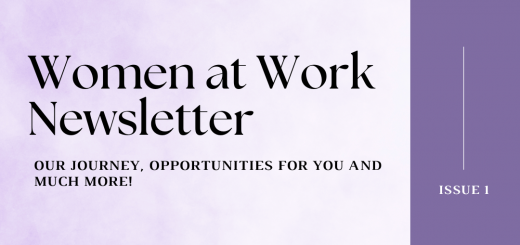Mental Health as a Key Factor in Building Inclusive Workplaces
By Aryaman Kashyap

In one of our recent polls, we asked social sector professionals from our LinkedIn community – ‘Do you feel you have enough opportunities to look after your health and mental well being after work?’. The responses provided us with an interesting glimpse into the discrepancies that exist concerning the mental health and well-being of employees, and the available resources for the same. While 23% answered ‘Absolutely’ and 37% answered ‘Somewhat’, 40% of the respondents indicated ‘Not at all’. The fact that a significant number of people responded on the paucity of opportunities to prioritise their mental health and overall well being after work is suggestive of a broader problem relating to the nature of work culture and work-life balance which many face today.
Internationally, the perspective on mental health has changed and transformed in recent years. For many who may have been quick to dismiss it earlier, the post Covid era led to increased sensitisation and receptiveness in some ways. A recent survey undertaken by Harvard Business Review found 78% of its respondents rating a healthy and sustainable work culture as ‘moderately, very or extremely helpful’. Their research led to them concluding that employees are seeing mental health as a ‘collective workplace responsibility’ rather than an individual one, and supporting mental health at work means fundamentally realigning an organization’s culture with human well-being.
At Arthan, the key objective of our Organization Development Programme (ODP) on gender equity is to evaluate and identify crucial aspects of organizational growth through culture, and workplace practices and behaviours in Social Impact Orgs. Our goal is to comprehensively assess and diagnose key areas of organizational development through assessments and programs, while taking steps to confront norms, power dynamics, and structures that perpetuate gender inequalities. Our program is tailored to align with partner organizations’ specific focus, geographical and social contexts, as well as employee diversity, among other factors. With the primary goal of enhancing sensitisation on Gender Equity within organizations, we also aim through this programme to ensure awareness among all employees of the organizations wherein they have a clear understanding of key gender concepts, including gender biases and stereotypes, the need for gender equity, and how societal norms play out at workplaces.
The overall process helps make space for accommodation of mental health and well being – encouraging steps such as therapy and self care allowances, flexible leave policies, and other resources which can be availed. The impact of such practices on the workforce and overall work culture is extremely positive as it curates a space where employees feel comfortable but also motivated to do better. There are plenty of reasons for employees and organizations to invest in creating such workplaces which are inclusive and foster a sense of belongingness. Research has shown that such practices are often followed by greater productivity and innovation. The European Trade Union Institute (ETUI) in a 2018 report affirmed the positive effects of inclusive practices on productivity, because they target and improve organisational climate, employee motivation, empowerment, loyalty and commitment. The need to couple diversity with inclusive practices within organisations was also affirmed by the International Labour Organization in its 2022 report, wherein they iterated that ample research has shown that inclusive practices have an overall positive effect on innovation, productivity and retention in organizations. The ILO in its report found only half of its respondents saying that diversity and inclusion were sufficiently identified and resourced in their workplaces’ culture and strategy, in spite of research having shown positive linkages.
While the overall focus remains on gender inclusion and sensitisation, by placing importance on inclusivity and belonging at the workplace, our programme also gives way for dialogues around wellness and wellbeing at workplace, thus paving way for knowledge sharing between organizations in this realm. By suggesting that the subjective nature of identities and experience shapes other occurrences both in and outside the workplace, our work emphasises understanding and empathy at its core, and uses the same, instrumentally, to help identify and alleviate biases and microaggressions. Gender is a key example of a factor which shapes work and the overall experience of work culture. Challenges faced by workers differ based on gender, economic background, cultural and socio-cultural identities etc. amongst other things. Highlighting the need to understand differing experiences and urging people to identify biases in behaviour and work culture is central to the broader goal of achieving a work culture which is healthy, sustainable and inclusive.
Both the ETUI and the ILO in their respective research and policy brief highlighted that a healthy and inclusive work culture is not just sustainable for organizations in the long run, but also has a positive role to play in productivity and retention. Adopting inclusive practices which help employees prioritise mental and physical well being, due to their multitudinal benefits, are an invaluable asset for organizations. Encouraging experiences to be shared and recognised in the workplace is known to lead to a strong work culture. Therefore, bringing such concepts and learnings to the forefront, our work with organizations serves as an indispensable initial step towards achieving this goal. It paves the way for individual experience to be respected at the workplace, and the diverse range of factors which shape experience are given respect and consideration in organizational practices. The resulting process is one which, while zeroing in on gender sensitivity, is also able to bring empathy into organizations and organizational culture. Making use of effective practices, and also coming up with new ones based on needs, must be given priority within organisations looking to better overall performance, productivity and workforce well being.
To help you prioritise your health and well being, we have compiled some resources where you may find information or support that could be of help.
- A platform offering mental health support services for individuals: https://www.amahahealth.com/
- Helping employees understand when it’s time to recharge and why setting workplace boundaries matters: https://www.humanise.co.in/posts/why-switching-off-from-work-should-be-a-part-of-your-calendar
- Guidance for employees on understanding and asserting their mental health rights in the workplace: https://blogs.koolkanya.com/mental-health-rights-at-work-in-india/


